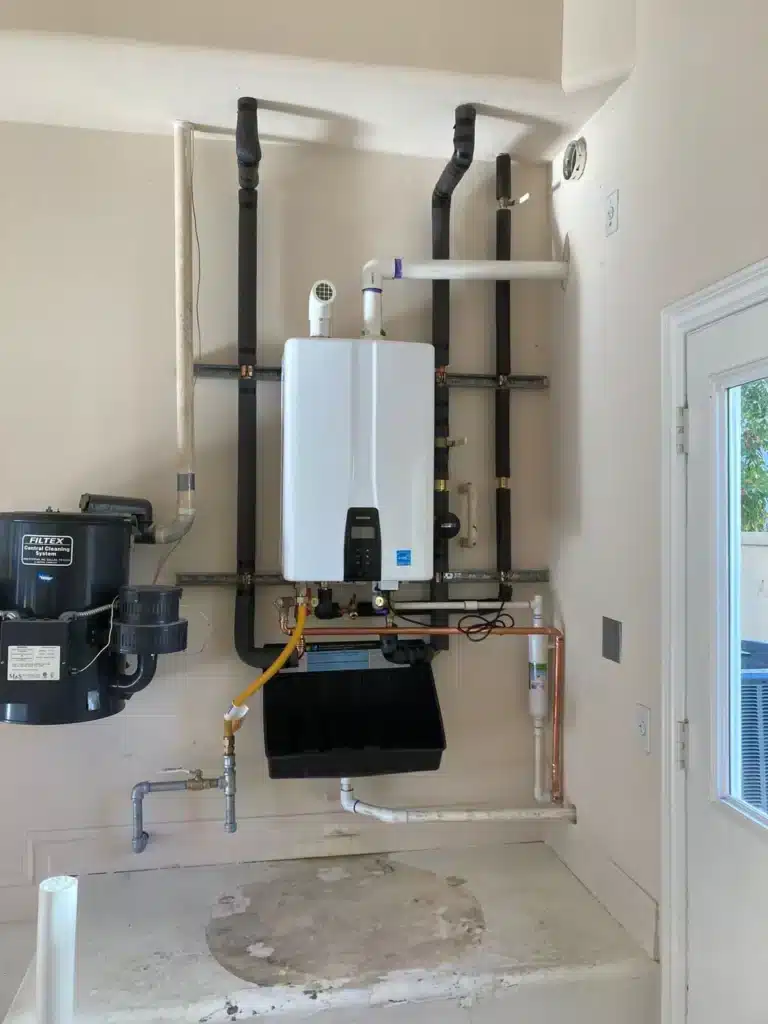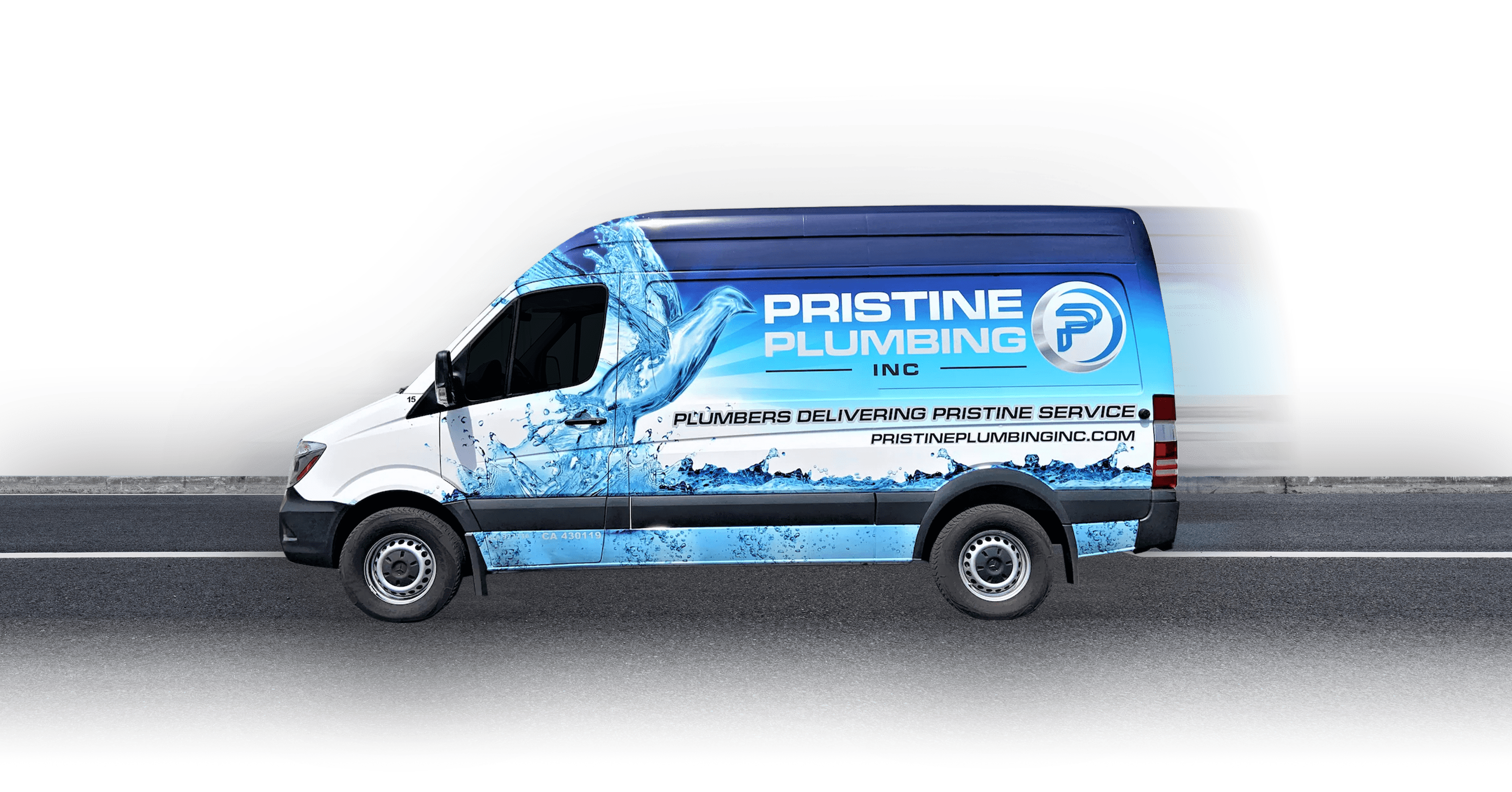
Water heaters are essential for your home’s comfort and energy efficiency. With options like traditional tank water heaters, tankless systems, and hybrid models, it’s crucial to understand the differences to make the best decision for your needs. Each type offers unique benefits, such as affordability, energy savings, or compact design, but it also has trade-offs.
Understanding the advantages and disadvantages of various water heater types can help you confidently choose the one that best suits your lifestyle, budget, and home size.
Advantages and Disadvantages of Water Heater Types
There are several types of water heaters, each with its pros and cons. From traditional tank water heaters that store hot water for immediate use to tankless models that heat water on demand and heat pump systems that save energy by transferring heat from the air or ground, there’s a type to suit every home.
Each option varies in capacity, energy efficiency, and installation requirements, so it’s important to consider what fits best for your home and budget.
Tank Water Heaters
Tank water heaters are the classic choice for many households. They store hot water in a large tank and keep it ready for use when needed. These heaters are usually powered by electricity or gas. When cold water enters the tank, it’s heated to your preferred temperature and held there until you’re ready to use it.
Advantages
- Affordable to purchase and install
- Available in various sizes to fit your home’s needs
- Hot water is available at the touch of a tap.
Disadvantages
- Limited hot water supply for large families or extended use
- Life expectancy of only 10-15 years
- Less energy-efficient due to heat loss from the tank
When installing or replacing your tank water heater, trust the experts at Pristine Plumbing to handle the job. Our professional installation ensures long-lasting performance and efficiency.
Tankless Water Heaters
Tankless water heaters heat water directly without a bulky storage tank. These compact units instantly heat water as it flows through, providing a continuous supply without running out.
Advantages
- Heats water instantly—never run out of hot water
- More energy-efficient than traditional tank heaters
- Space-saving can be mounted on the wall
Disadvantages
- Best suited for gas-powered homes, as electric models may need expensive upgrades
- Higher upfront cost for purchase and installation
- Limited flow rate—not ideal for large families or multiple simultaneous water uses
At Pristine Plumbing, we specialize in installing tankless water heaters. Our expert technicians make the installation process smooth and stress-free, so you can enjoy endless hot water immediately.
Heat Pump or Hybrid Water Heaters
Heat pumps or hybrid water heaters are among the most energy-efficient options. They use a heat pump system to transfer heat from the air or ground to warm the water, rather than generating heat from electricity or gas.
Advantages
- 60% more energy-efficient than standard electric water heaters
- It can save you money over time with lower energy costs
- Eco-friendly, reducing your carbon footprint
Disadvantages
- It is not ideal for cold climates—better for warmer areas
- Large installation space—requires up to 1,000 cubic feet
- Expensive upfront costs
Choosing the Right Water Heater Type
Choosing the right water heater type is more than just picking the first one you see. Different types have different benefits and trade-offs, so you’ll want to evaluate your options carefully. Before deciding, consider your hot water needs, budget, space, and operating costs. What works for one home might not be your best choice, so weighing each option’s advantages and disadvantages is crucial.
Comparing Tank, Tankless, and Hybrid Water Heaters
|
Feature |
Tank |
Tankless |
Hybrid |
|
Installation |
Simple, requires space |
Complex, compact retrofitting needed |
Moderate, requires ventilation |
|
Upfront Costs |
$400–$1,000 |
$1,500–$3,000 |
$1,200–$3,500 |
|
Energy Efficiency |
Moderate (0.50–0.70 UEF) |
High (0.80–0.98 UEF) |
Very High (>3.0 UEF) |
|
Operational Costs |
Higher due to heat loss |
Lower due to on-demand heating |
Lowest due to efficient technology |
|
Environmental Impact |
High emissions |
Low emissions |
Lowest emissions |
|
Ideal For |
Budget-conscious or quick replacement |
Small to medium homes, limited space |
Large families or eco-conscious homeowners |
Pros and Cons of Electric, Gas, and Solar Water Heaters
Water heaters can also be powered by electric, gas, and solar fuels. Each fuel source has pros and cons in operating costs, installation requirements, and functionality. Understanding each water heater’s pros and cons will help you make the best choice based on your budget, energy needs, and home setup.
Electric Water Heaters
Pros:
- Lower Upfront Costs: Electric water heaters are typically more affordable upfront in terms of purchase price and installation.
- Safety: With no gas, electric water heaters eliminate the risk of leaks or explosions, making them safer.
- Ease of Installation: Electric models are easy to install because they don’t require venting or gas lines.
Cons:
- Higher Operating Costs: Electricity tends to be more expensive than natural gas, which can increase monthly utility bills.
- Slower Heating Time: Electric heaters often take longer to heat water, especially when demand is high in larger households.
- Limited Hot Water Supply: Traditional electric tanks may not be able to provide enough hot water for larger families or simultaneous use across multiple appliances.
Gas Water Heaters
Pros:
- Lower Operating Costs: Gas is usually cheaper than electricity, making it a cost-effective choice for th
ose who want to reduce their energy bills. - Faster Heating: Gas heaters can heat water much faster than electric ones, so you won’t have to wait long to enjoy hot water.
- Continuous Hot Water: With tankless gas water heaters, you get endless hot water, so you’ll never run out, even with multiple people using it at once.
Cons:
- Potential for Gas Leaks: Gas leaks can be dangerous if undetected, so regular maintenance is essential to ensure safety.
- Environmental Impact: Burning gas releases greenhouse gases, contributing to pollution and climate change.
- Complex Installation: Installation requires more expertise and careful adherence to building codes, making the process more complicated and costly.
Solar Water Heaters
Pros:
- Environmental Friendliness: Solar water heaters harness renewable energy from the sun, reducing your reliance on fossil fuels and lowering your carbon footprint.
- Long-Term Cost Savings: While installation is expensive, the long-term savings on energy bills can make solar heaters pay for themselves over time.
- Low Maintenance: Once installed, solar water heaters require little maintenance, with occasional panel cleaning being the main task.
- Increased Property Value: Installing a solar water heater can increase the value of your home, making it an attractive investment.
Cons:
- High Initial Cost: The upfront cost of a solar system is higher than that of other types, but rebates and incentives are often available to help.
- Weather Dependence: Solar heaters depend on sunlight, so cloudy days or limited sunlight can reduce efficiency. A backup heating system may be needed.
- Space Requirements: Solar panels require ample roof space to capture enough sunlight. If your roof is shaded or small, it might not be suitable.
Partner With Water Heater Pros for Installation, Repair or Replacement
Our technicians at Pristine Plumbing have the knowledge and experience to install, repair, and replace a wide variety of water heater models, from traditional storage tanks to energy-efficient tankless systems. We follow manufacturer guidelines and industry best practices to ensure your water heater operates flawlessly and meets all safety standards.
Whether you’re looking for an affordable storage tank system or a more energy-efficient tankless model, we’re here to provide expert service and help you choose the right solution. Contact us for professional plumbing services and hassle-free appointments.
